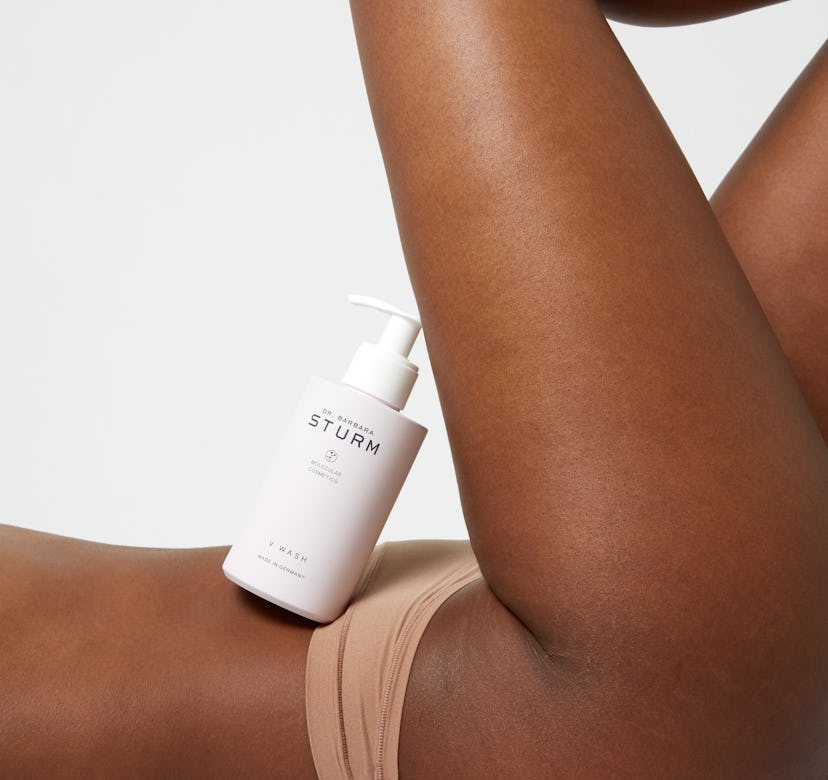(V Is For Vagina)
What You Should *Actually* Be Looking For In A Feminine Wash, According To Doctors
Not all soaps are created equal.

Let’s be real: Your shower is probably already filled to the brim with different types of body products, from moisturizing washes to smoothing scrubs. But if you’re a person with a vagina, there’s a chance that there’s a gap in your repertoire — feminine washes. Yep, there are separate cleansers made for your most intimate areas, and there are plenty of reasons why you should be using them.
Before you dive into those options, though, it’s important to note that you should never use a soap or cleanser inside your actual vagina. According to Dr. Jessica Shepherd, Chief Medical Officer of Verywell Health and board-certified obstetrician-gynecologist, this is because the vagina cleans itself. “The vaginal canal is self-cleansing as it has glands that secrete fluids to keep it cleansed and it has a specific pH that needs to be maintained,” she tells TZR in an email. “This wetness helps keep the vagina clean, provides lubrication, prevents infections, and also protects against tearing and injury.”
And yes, this is true even if it seems like it should be cleansed, says Dr. Leah Millheiser, OBGYN and Senior Vice President of Medical Affairs at Hims & Hers. “When a person notices symptoms such as an abnormal vaginal discharge or odor, they should be evaluated by a clinician instead of turning to home-base interventions, such as douching,” she explains. “Symptoms such as these can be signs of an infection.”
All that info may have you wondering what vagina-friendly soaps are even for. In reality, though, that common title is a bit of a misnomer. What you should actually be cleaning with a feminine wash is located on the outside of your vagina. “The vagina is the canal that extends from the introitus (opening of the vagina) to the cervix (located at the top of the vagina),” says Dr. Millheiser. “The external genitalia is called the vulva. This is the area that a person would cleanse in the bath or shower.”
Dr. Shepherd goes on to explain that it is OK to use gentle cleansers on this outer portion — aka the vulva and including the labia — “as it can become sweaty and sometimes have a musty odor due to sweat.” And while Dr. Millheiser says that it’s not necessary to use a wash that’s *specifically* made for the vulva, both doctors say you should use a product that’s mild and non-abrasive. Dr. Millheiser also says that, in general, they should be hypoallergenic, fragrance-free, and dye-free.
Dr. Shepherd expands on this, sharing that soaps used on the area should “not be excessive with perfumes and solutions such as alcohol, parabens, and sulfates.” She continues: “Use of perfumed soaps and body washes also contribute to stripping the vagina of good bacteria and also [mask scents that can] irritate and even aggravate the problem. Using products that are free of glycerin and parabens can help keep the pH balanced and good bacteria thriving.”
So what should you use? Dr. Millheiser notes that there are many cleansers that are safe for the vulva, though she often just recommends Dove plain bar soap to her patients (and for those who are very sensitive to cleansers, just plain water). That said, if you’re looking for more options, continue on to shop from the roundup of cleansers specifically formulated for your most intimate area, ahead.
We only include products that have been independently selected by TZRs editorial team. However, we may receive a portion of sales if you purchase a product through a link in this article.